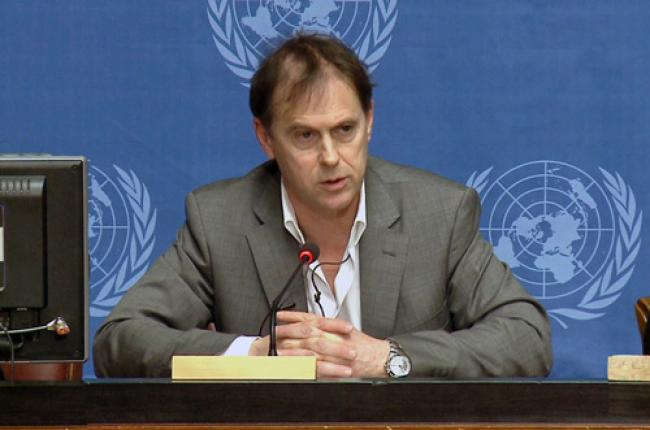12 Oct 2013

As he briefed reporters in Geneva, Rupert Colville, spokesperson for the UN Office of the High Commissioner for Human Rights (OHCHR) said the unanimous adoption on Oct 9 of a law establishing the national body marked a significant step forward towards eradicating torture in Tunisia.
Tunisia, he said, is the first country in the Middle East and North Africa to create such a national preventive mechanism, after ratifying in June 2011, the Optional Protocol to the Convention against Torture, which provides for the creation of such a preventive mechanism against torture in each State Party.
The mechanism, the National Body to Prevent Torture, will be independent and have broad jurisdiction, including the power to visit all places of detention.
Colville said that it should become operational as soon as the law is published, and ensure the respect and implementation of procedural safeguards for those deprived of their liberty.
“The Subcommittee on Prevention of Torture, the biggest UN committee and the only one with a visiting mandate, will provide assistance and advice to that newly-established body,” he said.
Under the Optional Protocol, the Subcommittee not only plays an advisory role, but also has unrestricted access to all places of detention in States that had ratified the Protocol.
“Its experts visited police stations, prisons, detention centres, mental health and social care institutions and other places where people were, or might be, deprived of their liberty,” Colville added.
He went on to say that the OHCHR Office in Tunisia – established two years earlier in the wake of the revolution – had played an important role in the establishment of the national body through debates and consultations, which brought together Tunisian Government actors, including the Ministry for Human Rights and Transitional Justice, and key non-governmental actors, including national and international civil society organizations.
Colville reiterated that the adoption of the law is an important milestone during the ongoing transition in Tunisia, “and in particular in the effort to bring the country in line with international rule of law and human rights norms and standards.”
Rupert Colville, spokesperson for the UN High Commissioner for Human Rights (OHCHR). UN Photo